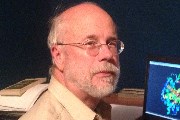Rats! This should have happened approx December 8, 2015, not January 8, 2016:
A friend writes to say that an open access paper at eLIFE includes the words,
Tissue organization, spindle orientation, and the GKPID complex itself are all examples of complexity, defined as the integrated functioning of a system made up of differentiated, interacting parts.
More.
Friend asks: Contrast this with what Michael Behe said years ago defining irreducible complexity: “A single system composed of several well-matched, interacting parts that
contribute to the basic function of the system ”
Note: The Brainyquote version adds, “wherein the removal of any one of the parts causes the system to effectively cease functioning.”
Hmmmm. Readers?
See also: Is it safer to be an unDarwinian now?
Follow UD News at Twitter!
Here’s the abstract:
Evolution of an ancient protein function involved in organized multicellularity in animals
To form and maintain organized tissues, multicellular organisms orient their mitotic spindles relative to neighboring cells. A molecular complex scaffolded by the GK protein-interaction domain (GKPID) mediates spindle orientation in diverse animal taxa by linking microtubule motor proteins to a marker protein on the cell cortex localized by external cues. Here we illuminate how this complex evolved and commandeered control of spindle orientation from a more ancient mechanism. The complex was assembled through a series of molecular exploitation events, one of which – the evolution of GKPID’s capacity to bind the cortical marker protein – can be recapitulated by reintroducing a single historical substitution into the reconstructed ancestral GKPID. This change revealed and repurposed an ancient molecular surface that previously had a radically different function. We show how the physical simplicity of this binding interface enabled the evolution of a new protein function now essential to the biological complexity of many animals.
DOI: http://dx.doi.org/10.7554/eLife.10147.001 Open access – Douglas P Anderson, Dustin S Whitney, Victor Hanson-Smith, Arielle Woznica, William Campodonico-Burnett, Brian F Volkman, Nicole King, Kenneth E PrehodaCorresponding Author, Joseph W ThorntonCorresponding Author

